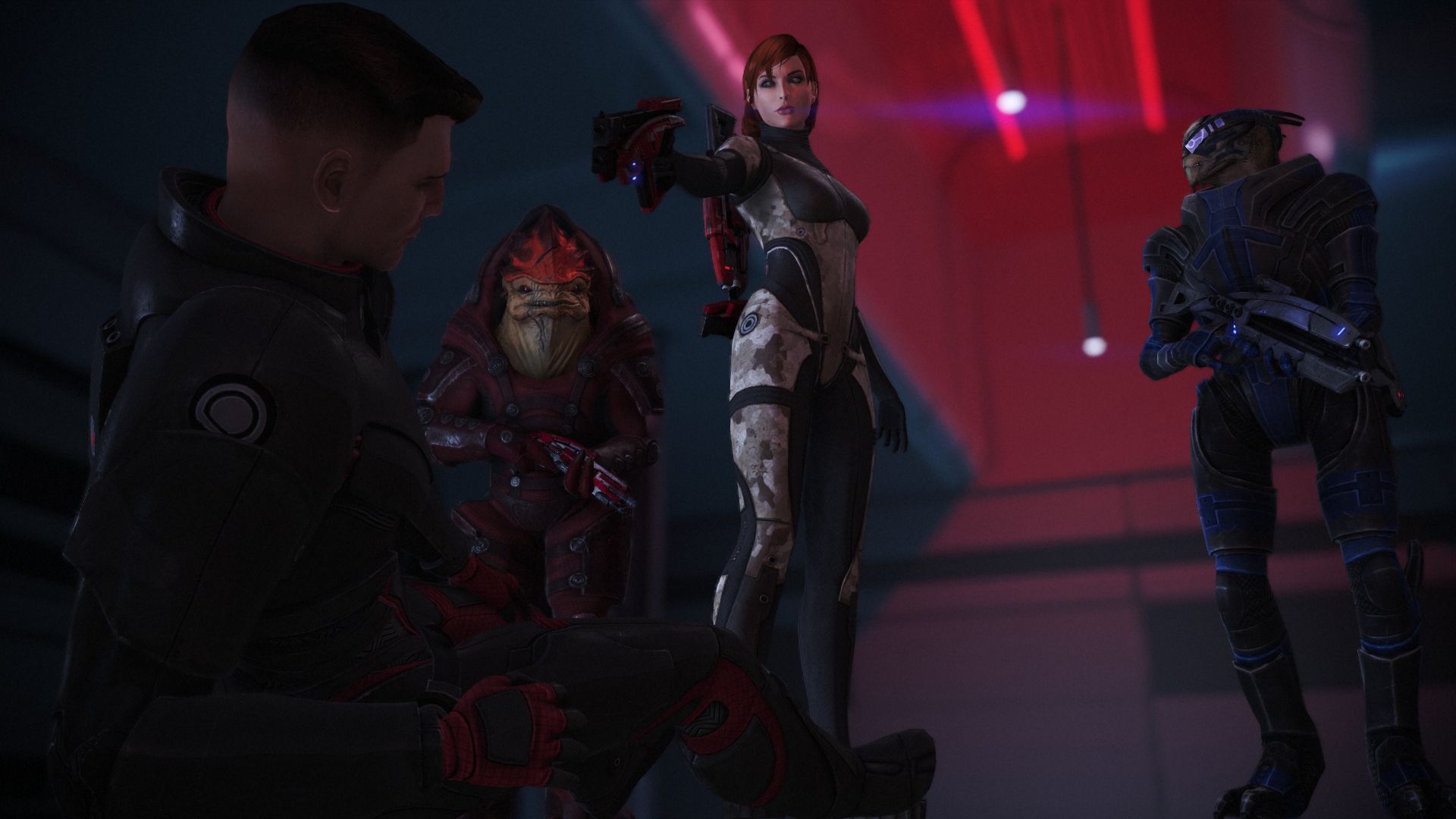Our Verdict
Modest improvements to an RPG that deserved to be remade with a bolder vision.
PC Gamer's got your back
There are two camps when it comes to the original Mass Effect. One admires its relatively old-school RPG sensibility (the bloated inventory and stats that affect how wobbly the sniper rifle is), and appreciates that it was slightly closer to classic sci-fi than the sequels—more Starship Troopers the novel than Starship Troopers the movie.
Mass Effect Legendary Edition includes remastered versions of Mass Effect 1, 2, and 3, plus most of the DLC. It's sold as a package, and you can't buy the remasters individually. Despite that, we decided that reviewing just the first game, which got the biggest overhaul, would be more useful than reviewing all three at once. For a broader look, we've also published a technical analysis of the entire Legendary Edition.
Over in camp two, ME1 is seen as a bit clumsy, both because of the controls—particularly the Mako, a tank that flips on its back like a turtle eager to be used in a Voight-Kampff test—and the way it clings to design elements that don't fit the kind of story it's telling. ME1 promises the full space captain experience, and then makes you regularly check in with a shopkeeper in your ship to make sure you don't fall behind the gear curve. Kirk never had to deal with that.
I'm in camp two. ME1 is best when it's about stepping off your spaceship into a sci-fi short story with a gun and a conveniently invisible tool for translating alien languages. Though you pick your face, class, and background, you're always official space badass Commander Shepard of the Normandy—a ship conveniently sized for jogging around talking to NPCs between missions—and every questline planet you land on is another episode of your own TV show.
The next generation
For those who came in late: Mass Effect was released in 2007, at least on Xbox, the year after Gears of War. At the height of third-person cover shooter mania, BioWare fused that idea with the RPG formula the studio had been developing since Baldur's Gate 2: A hero gathers allies to save the world, gets to know them, solves their problems, and agonizes over moral choices/which one to bang. To players coming off extremely brown games about thick-necked grimacing men that was impressive stuff.
Another impressive thing ME1 managed—better than the sequels, to give it its due—is making its villain Saren a memorable opponent. He's a mirror of Shepard, what you'd become if you broke too many rules and made too many compromises, with his own spaceship and blue alien sidekick. But he can also rant like a cartoon baddie when the moment calls for it. He'll argue philosophy when it's time to confront the hero, and rave like Skeletor in a cutscene as a reminder you've foiled his plans and he'll get you yet.
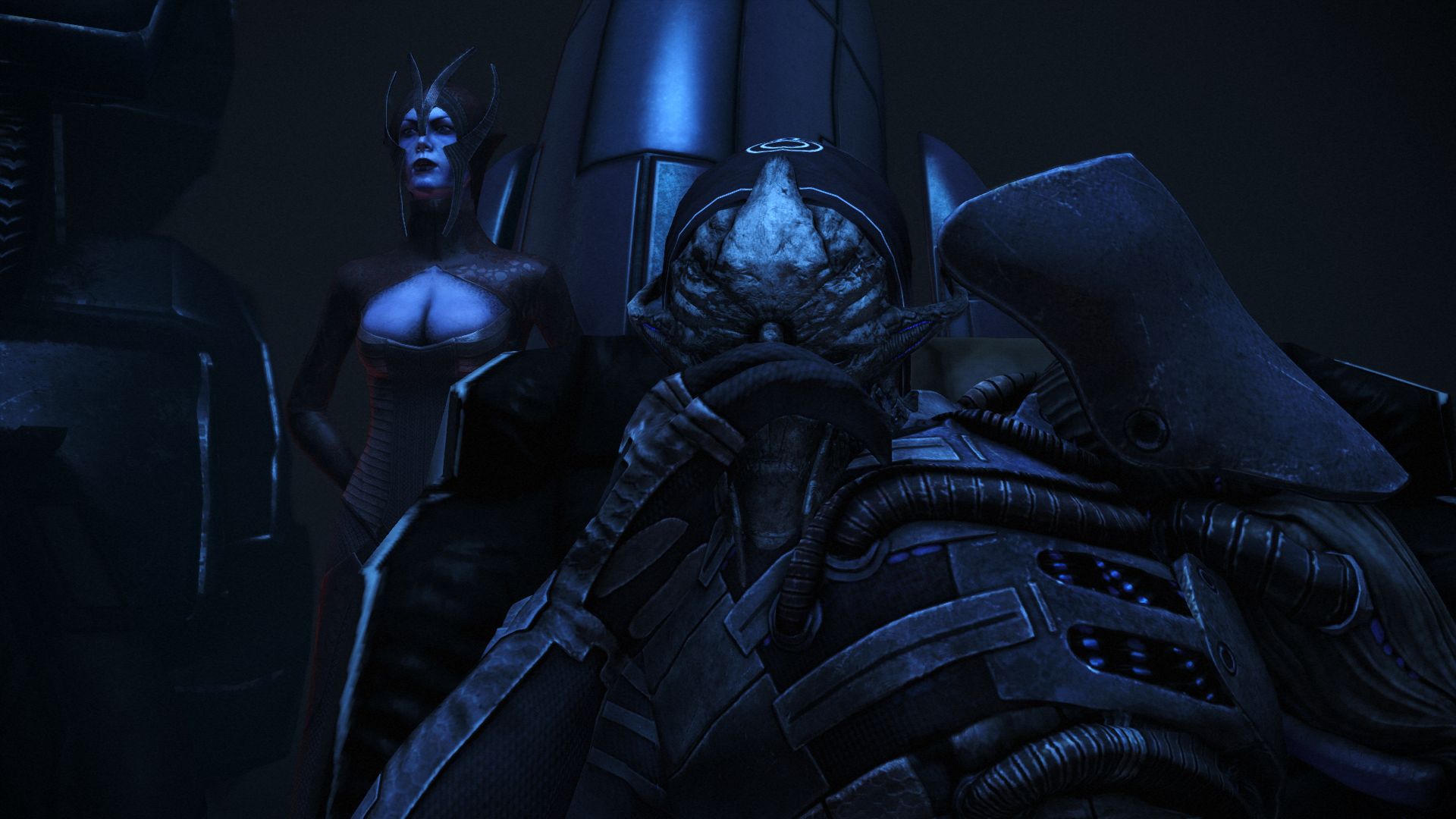
Saren's a rogue secret agent, a SPECTRE, which is an abbreviation of Special Tactics & Reconnaissance that somehow works in English despite being an organization founded by aliens. If that kind of detail bugs you, wait till Mass Effect has someone cloned by an alien plant multiple times, each clone emerging from a pod fully clothed and carrying a gun.
Although Mass Effect nods at hard sci-fi, it's just being a friendly neighbour. There's plenty of pulp and space opera in its DNA. It's a gleeful mash-up of Star Wars, Star Trek, Babylon 5, David Brin's Uplift Saga, Alastair Reynolds' Revelation Space, and plenty more besides, complete with familiar clichés like the proud warrior species (except instead of humans with bumpy heads they're sharktoads), and cute green alien girls (except they're blue).
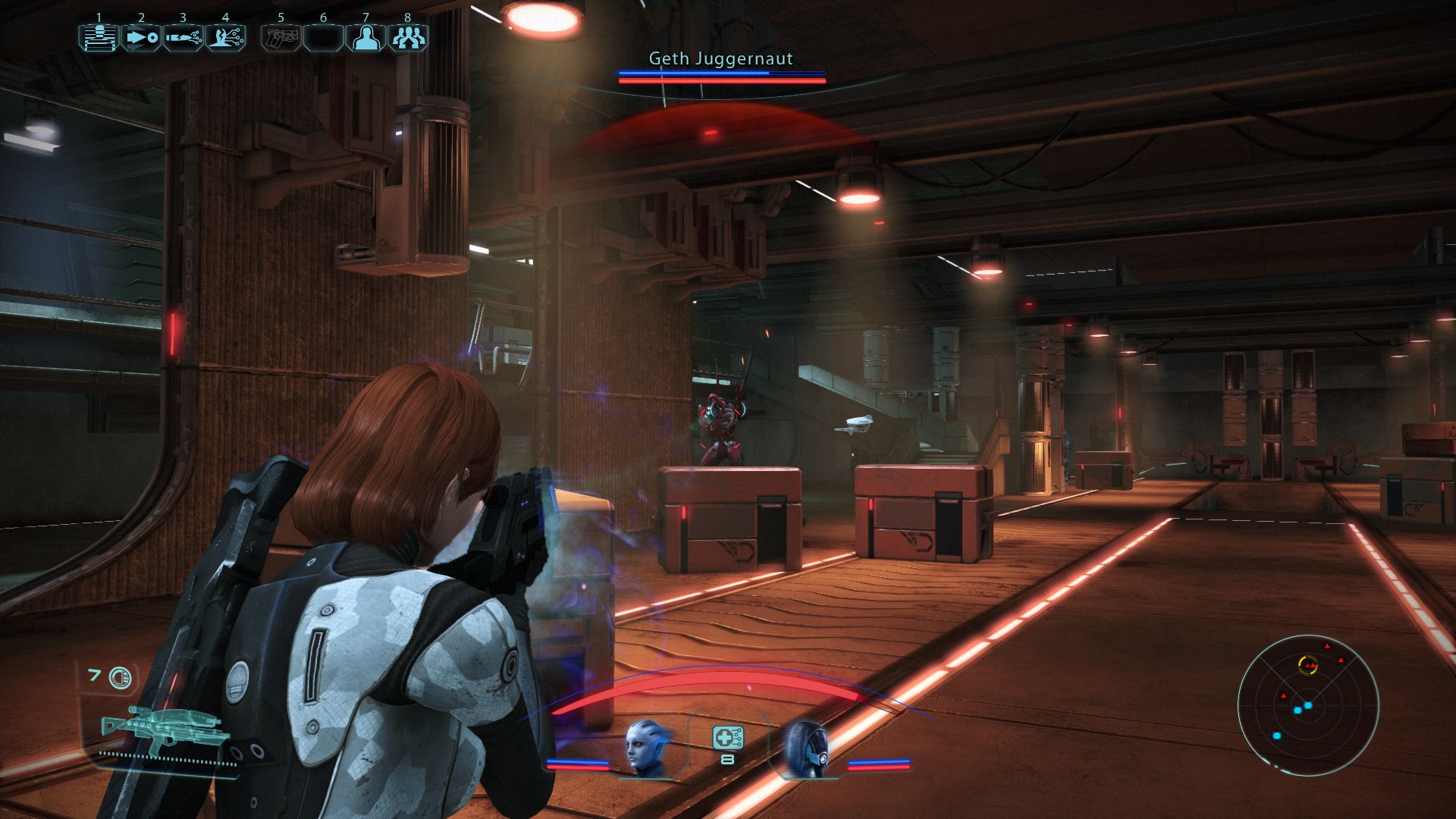
What is it? BioWare's space opera RPG remastered.
Expect to pay: $60/£55
Developer: BioWare
Publisher: Electronic Arts
Reviewed on: Windows 10, Intel Core i7, 16GB RAM, Nvidia GTX 1060
Multiplayer? No
Out: Now
Link: Official site
Because I'm in camp two, I'm glad the Legendary Edition gives ME1 controls and combat more suited to an action-heavy adventure serial, closer to the sequels than the fussy original. You can use every gun rather than just those you have the skill for, with accurate reticles that don't bloom out wide because you haven't put points in assault rifle. ME1 has gone from a game where I mostly stuck to pistols to one where I actually switch weapons to suit the circumstance, bringing out the shotgun when husks charge and using the sniper rifle at range even if I'm not playing an Infiltrator. It's my third time through ME1 and only now have I learned its assault rifles are fun.
The combat's definitely better thanks to that freedom, though the AI is rough. Husks and creepers do a confused little circular dance when trying to rush you, and your allies are useless if not micromanaged by pausing frequently. That was especially noticeable on Therum, the planet where you recruit smoochable science expert Liara. Therum's covered with rubble perfectly sized to make you leave the Mako, and then to provide convenient cover once you do. Mid-fight I realized one of my crew, Kaidan (human, boring, has headaches instead of a personality), had fallen behind and found him stuck on the Mako's wheels. Even after nudging him free he wasn't much help, not because he's no Garrus (alien, ex-cop, too cool for rules), but because all your squadmates like to stand in the open shooting directly at walls.
The fight that followed was one of the more difficult ones, against a geth colossus and its headlamp-head allies, followed by a krogan who regenerated rapidly. It's been rebalanced in the Legendary Edition—the colossus no longer advances on you, making it easier, but is now accompanied by a sniper in a tower, making it harder again. In the end it's kind of a wash.
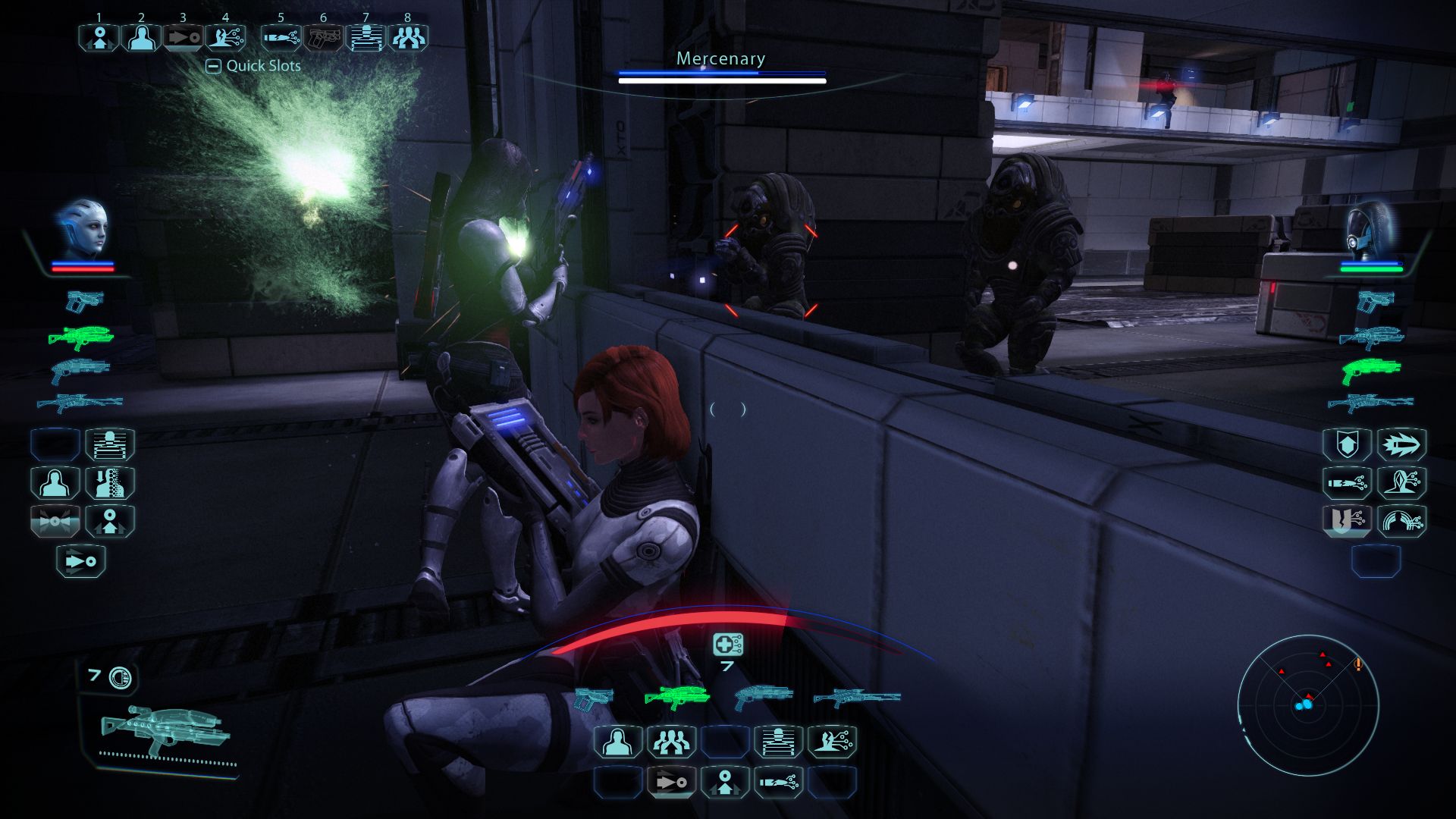
Combat's easier overall though, thanks to the option to use any gun, accurate aiming, and some extra weapon variations with semi-auto and burst-fire. It's still about waiting behind cover for powers to come off cooldown, and in spite of similarities to the sequels' combat, some of what makes them fun is oddly missing. Things like the abilities that let you charge forward or enjoy a few seconds of bullet-time, the way powers homed instead of needing precise aim, and the ability to order your squadmates to reposition or attack while paused—you do that in real-time here, but in pause mode can only tell them to use abilities.
I do like bossing my squad around, having Liara drop a singularity that sends everyone floating, then hurling them away with other powers or skeet-shooting them out of the sky. It's just that while the combat's been upgraded, it's so easy to see how it could be even better. Which is Mass Effect Legendary Edition all over.
Dressed for some Wrex
Mostly, it looks great. Mass Effect was always good at big space spectacle, and the cutscene where you first see Citadel Station remains a rush. In-game moments that are supposed to feel significant are enhanced, such as seeing Sovereign blast off on Eden Prime. Though parts of the sky look apocalyptic, it's no longer a blur of moody red and black like a goth teenager's bedroom and you can actually see the big evil squid-ship in detail. The whole game is brighter, highlighting ME2's shift to shadowy murk and letting you ogle ME1's up-ressed textures. In a rare example of going the opposite way, the snow on Noveria obscures distant landscape you used to be able to see and looks like an actual blizzard now.
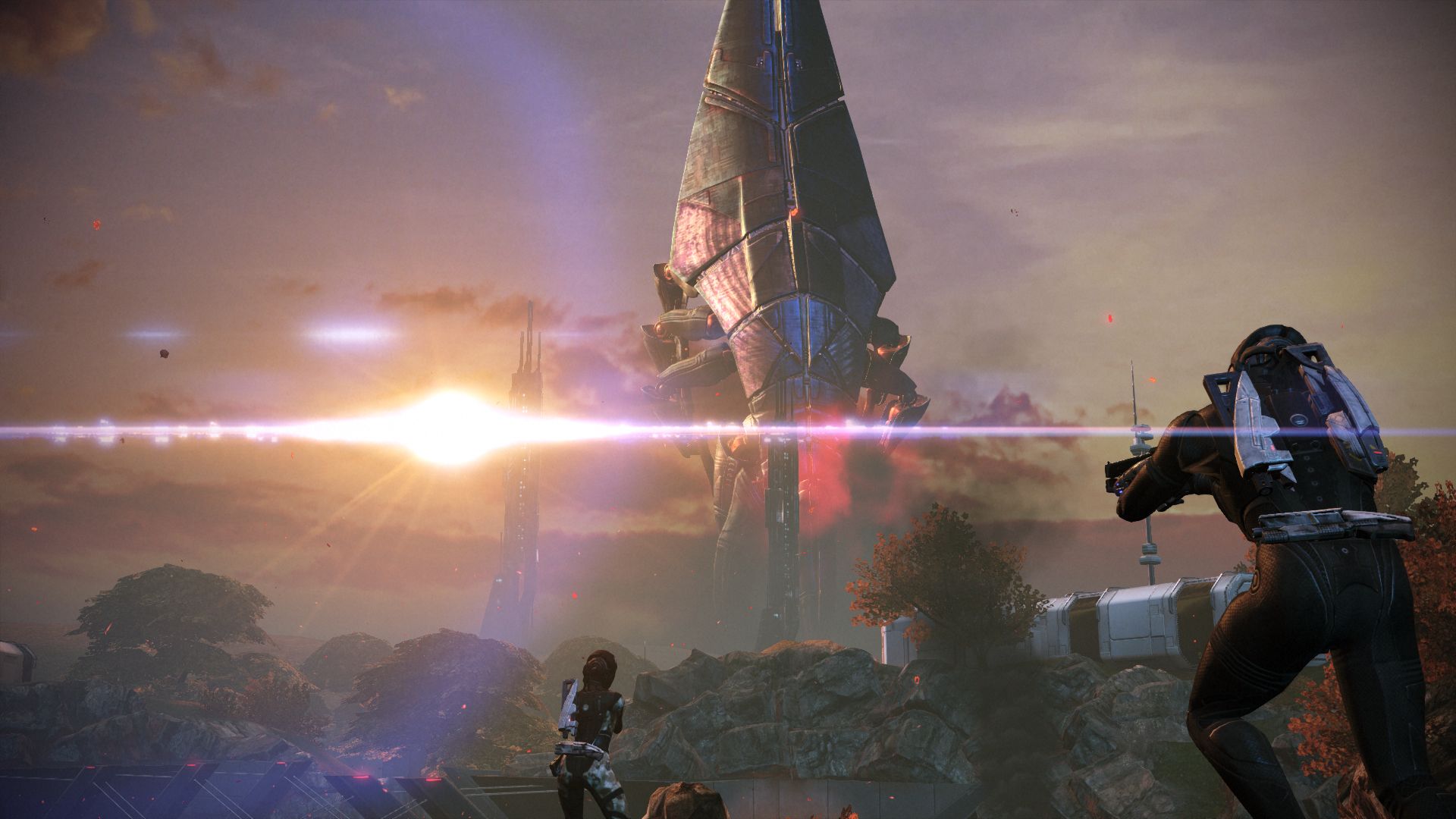
The improvements do highlight some old failings. Characters have more detailed faces, but perform the same clumsy animations, and almost every human who isn't Shepard has terrible hair. And some changes aren't clear improvements. Councillor Udina's so shiny it's like he's been dunked in syrup. There's a spot on the Normandy where the lighting makes shadows flicker, and unfortunately it's where an early conversation happens so you get a rough first impression of what having a fringe cast shadows on your face looks like.
One of the defining experiences of Mass Effect was spending ages in the character creator making a custom Shepard, realising later that your cheekbones were so pointy you could cut glass with them, or your eyes clipped through your eyelids when you blinked, then having to decide whether it's worth replaying the start just to fix that. It remains a problem here—Shepard moves their face too much when you're adjusting sliders—though at least there are more hairstyles, and they're nice.
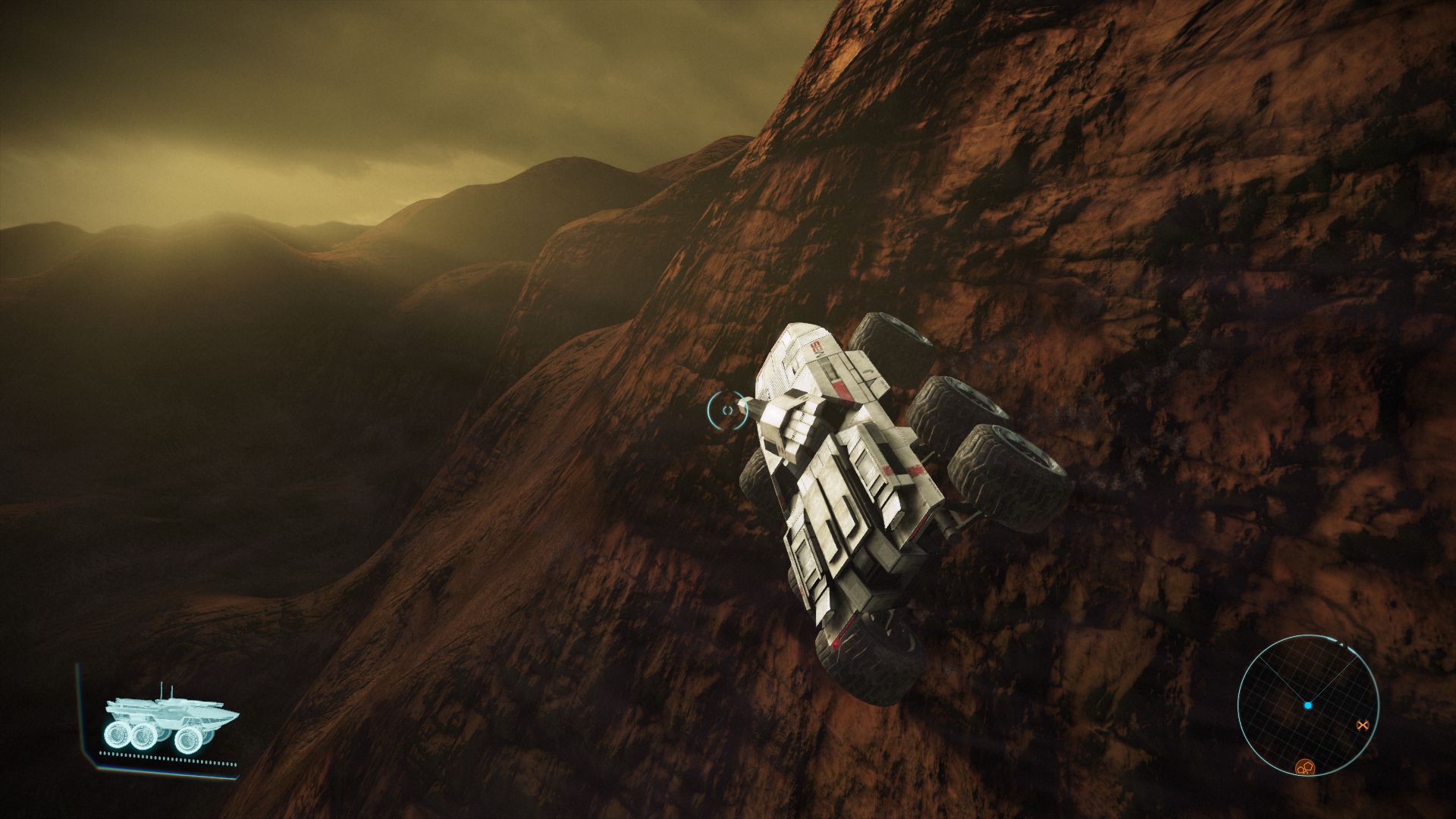
My love for you is like a truck
While the revised Mako feels heavier and has a boost, it's still going to flip. The problem was never just its controls, but that the uncharted worlds away from the main questline you drove it across had sheer mountain ranges with objectives at the top or on the far side. Those planets have been visually overhauled, drenched in horizontal lens flare and particle effects—they're the only place my framerate dropped below 60—but remain dull to be on.
The planetary sidequests are as copy-pasted as anything in Dragon Age 2: the same drive over or around mountains to a familiar bunker full of cover-clutter and enemies, the same circular Frogger minigame whether you're hacking computers or recovering a relic. On the way you might fight a thresher maw, the sandworms infesting the galaxy. The phases of their attacks are slightly different now. You'll still be bored by the third one.
In the years since its release, ME1 has gained a reputation as the "real RPG" of the trilogy because it has all this exploration and freedom, plus the inventory and stat management. That's one way to define an RPG, but they're also about roleplaying, and ME1's not great for that. You'll face a moral choice in plenty of missions, making you pick between Paragon "protect the innocent" and Renegade "take out bad guys at any cost" options. But ME1 gives "Renegade" a confusing meaning. Too often they're options to say something xenophobic or punch someone for no good reason, like when you're given the option to slug a guy who has a mental illness and is distressed because his planet's being invaded.
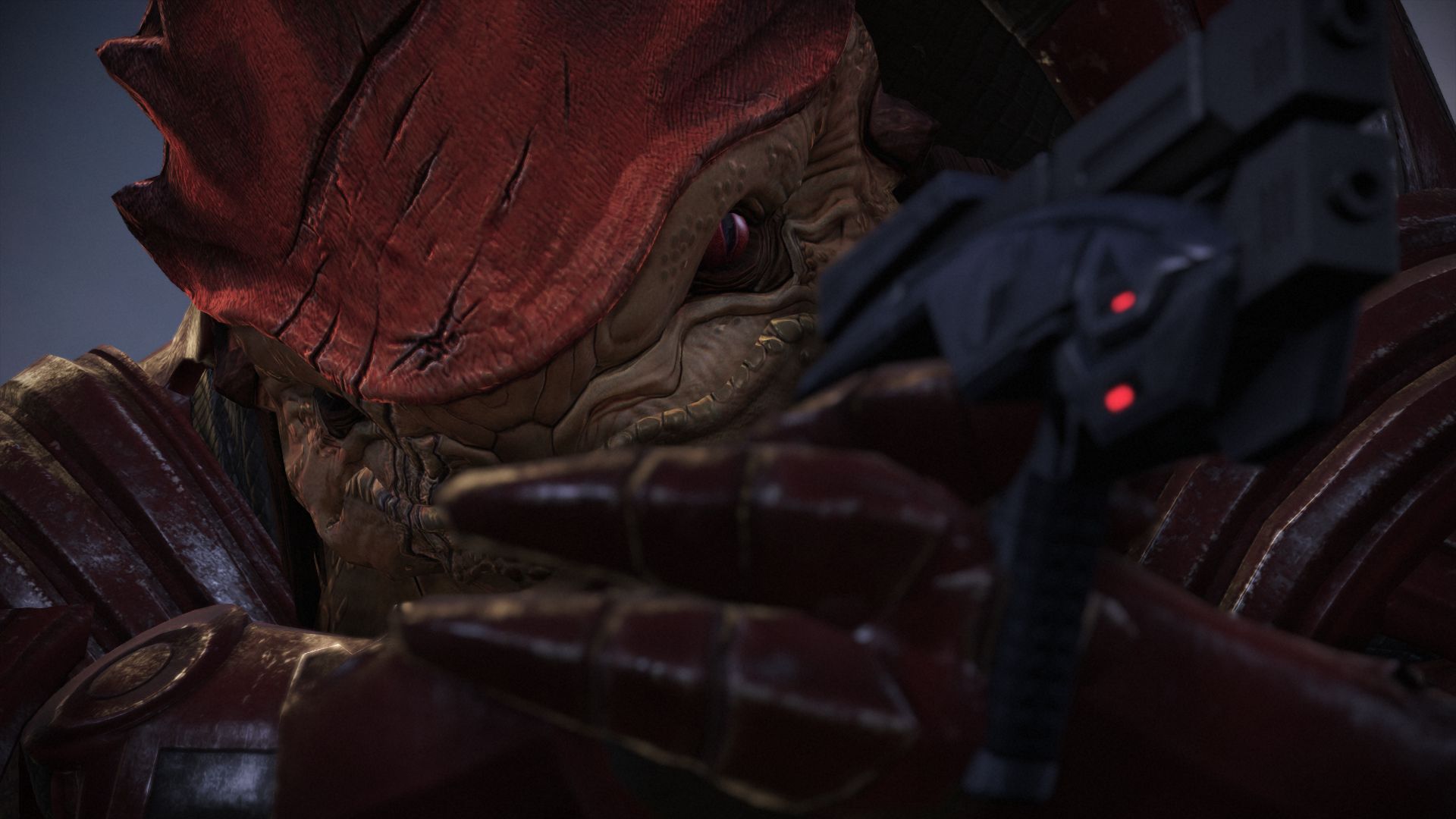
In ME2, it's tempting to go Renegade and headbutt a krogan because that's badass. In ME1, I'm rarely roleplaying when I choose Paragon. I just don't like watching Shepard be a dickhead.
Minor effect
Playing Mass Effect Legendary Edition is a constant see-saw of noticing an improvement, then wishing it went further. You can sprint outside combat, but only for like three seconds. There's a dedicated melee button, yet no way to separate the sprint and take cover actions to separate keys. You can skip the elevator rides, which are the only way to hear banter that could be filling the stretches where you jog from place to place. The graphics are better, but there's no FOV slider.
This three-games-in-one package is convenient, but I can't help thinking these games deserved to be remade separately over several years, ditching stuff that doesn't work like the minigames, reinstating cut content and filling gaps rather than just draping shinier skyboxes over them. Still, ME1 is better than it used to be. It's no longer tempting to skip straight to ME2, though once you leave the Citadel you should stick to the main questline and only do side missions when your squadmates ask. And play as a woman if you want to hear a really great voice performance.
Modest improvements to an RPG that deserved to be remade with a bolder vision.

Jody's first computer was a Commodore 64, so he remembers having to use a code wheel to play Pool of Radiance. A former music journalist who interviewed everyone from Giorgio Moroder to Trent Reznor, Jody also co-hosted Australia's first radio show about videogames, Zed Games. He's written for Rock Paper Shotgun, The Big Issue, GamesRadar, Zam, Glixel, Five Out of Ten Magazine, and Playboy.com, whose cheques with the bunny logo made for fun conversations at the bank. Jody's first article for PC Gamer was about the audio of Alien Isolation, published in 2015, and since then he's written about why Silent Hill belongs on PC, why Recettear: An Item Shop's Tale is the best fantasy shopkeeper tycoon game, and how weird Lost Ark can get. Jody edited PC Gamer Indie from 2017 to 2018, and he eventually lived up to his promise to play every Warhammer videogame.
